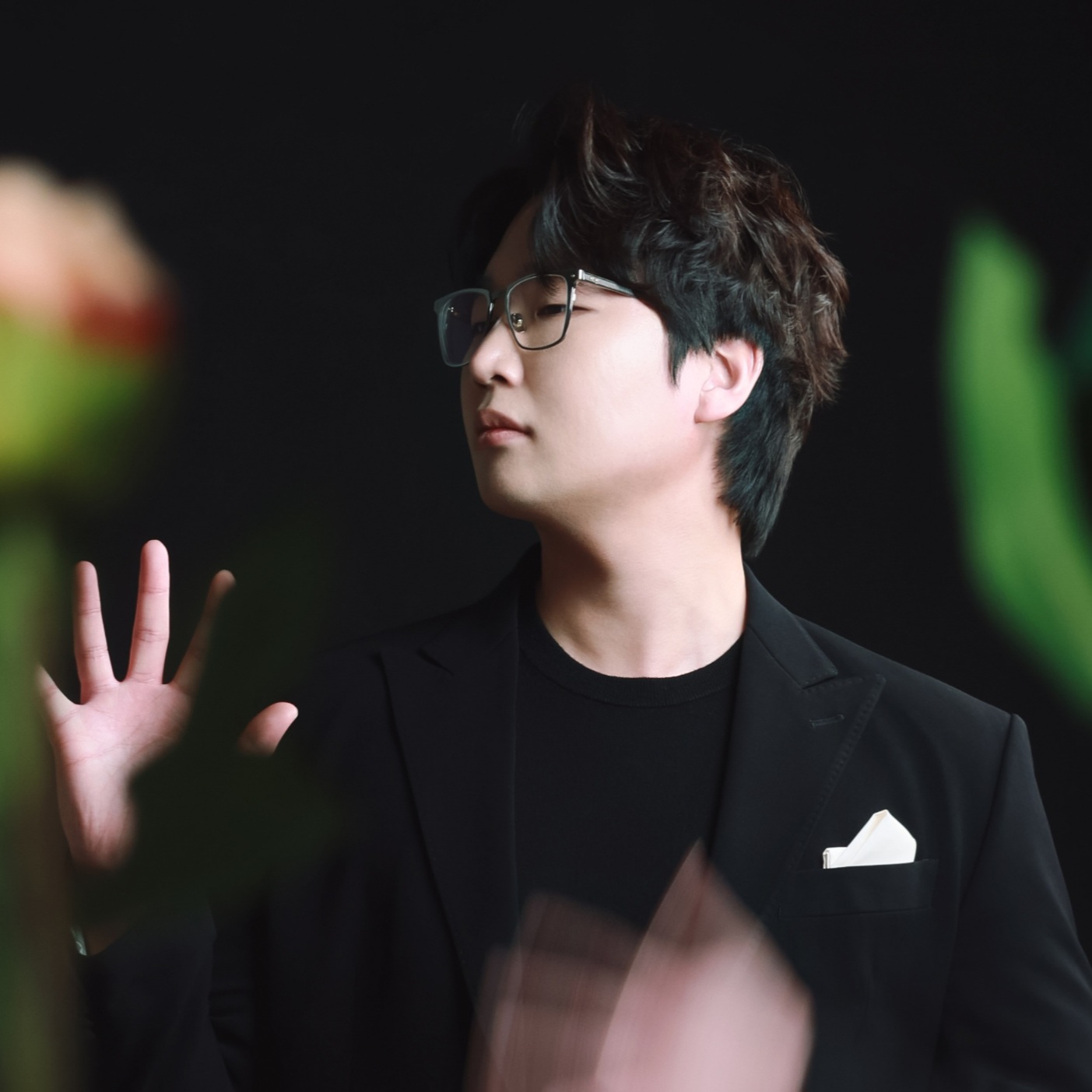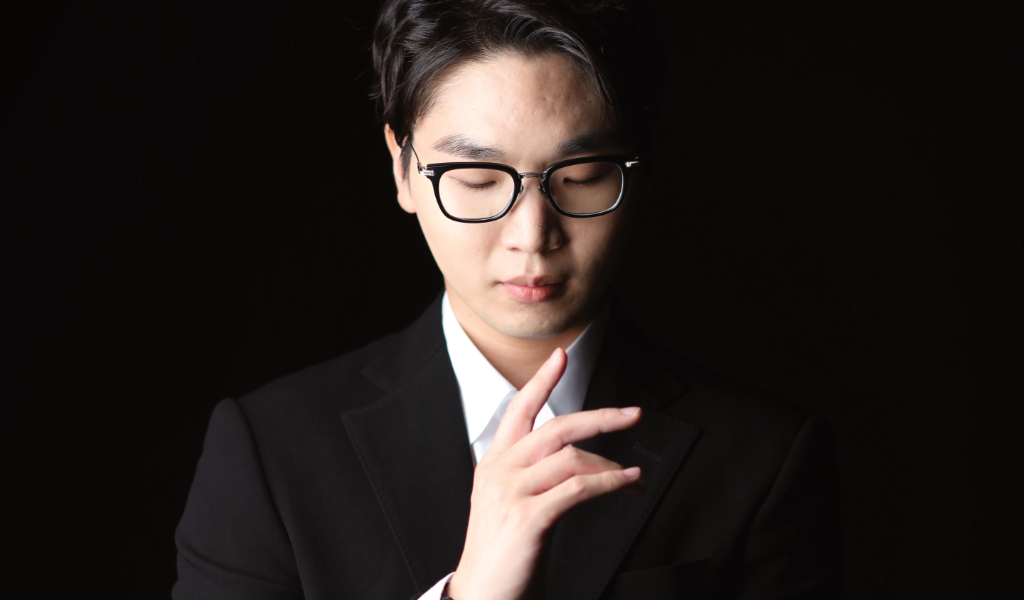
Jaehyuck Choi
Born in Seoul on 31 October 1994; Jaehyuck Choi is a composer, conductor, and Artistic Director of the ensemble blank. After winning the 1st prize of the Concours de Geneve in 2017, his works have been commissioned and premiered by the ensembles and orchestras such as Ensemble Intercontemporain, Parker Quartet, L'Orchestre de Chambre de Geneve, Seoul Philharmonic, Gyeonggi Philharmonic, The Juilliard Orchestra, FontanaMix Ensemble, and so on.

1. How would you describe your music to someone who is unfamiliar with it?
When a composer writes music and has it published, I believe they are trying to share something they deem beautiful to the audience. In the same vein, I am also trying to share what I find beautiful. It is somewhat similar to love. When people love, they want to share and experience things together. Music is my expression of embracing love. The world is full of unexpected surprises that bring us joy, happiness, excitement, sorrows, regrets, and many more emotions that are indescribable with mere language. I find all these emotions deeply precious and therefore beautiful. Sometimes they seem immortal, sometimes brutal and violent.
2. What is your educational background and training in music composition?
When a professor of composition in Korea found that I have talent in composition, he suggested that I should go study abroad. At that time, I was 13 years old. I applied and got accepted into Walnut Hill School For The Arts near Boston in the US. From then on, I was a "composition student". After that, I went to The Juilliard School for 6 years, completing both the Bachelor's and Master's degree. I met Matthias Pintscher at Juilliard, who has become, and still is, the biggest supporter of my musical joruney. And now, I am in Berlin, at the Barenboim-Said Akademie with Jörg Widmann, as an Art Diploma student.
Apart from school education, I have learned a lot from writing music for commissions. Right after winning the 1st prize of the prestigious Concours de Geneve, I was commissioned by the Menuhin International Violin Competition. This opportunity has made me grow into a professional composer. After that, the Banff Centre for the Arts, Parker Quartet, Ensemble Intercontemporain, Vivo Music Festival, and more, have all given me priceless opportunities to share my music along with world famous musicians.
3. Why did you decide to become a composer?
When I was little, I learned to play the violin. I wasn't majoring in it, but I simply enjoyed and had lots of fun playing it. Eventually, I joined an amateur youth orchestra, and because I was set to play the 1st violin section, I could play the melodies!
Mozart's and Telemann's melodies, to a little boy's eyes, were simple enough, that he wanted to try and imitate them. This was my first toe dip into the world of sculpting sound. I also found the conductor cool, a person just waving their magic wand around and around in front of everyone. Since then, I dreamed of becoming a conductor and composer at the same time.
4. Can you walk us through your composition process, from start to finish?
I am, most of the time, inspired by visual artworks. I tend to go to galleries or museums whenever I have time to see the works that are currently exhibited. Sometimes, I find a work that I feel very strongly attached to. I stare at it, and imagine, that if this painting or that sculpture had sound inside them, what would they sound like? What sounds would be hiding behind them? This brings me lots of joy and fun, just imagining. Once I hear a sound, usually after about 2 seconds, I write it down. After that, it's showtime for my pen and paper!
I write from left to right, and with no concrete plan. Of course, approximate time frame and instrumentation is already set, they usually are these days for commissions. But other than those, it is simply my pen improvising on paper. I do make sketches in the process though, regarding some harmonic moments: verticals. But I notice, that they always change on paper.
I write with a pen. So I am a very slow writer. However, my first draft is final, most of the time. Some composers make changes after the premiere, but I tend not to, unless it is crucial to do so. I learned to embrace my past self and their choices! ☺
5. Who or what are your primary sources of inspiration when creating music?
Visual Arts! But recently, I find scents very inspiring. For example, my most recent work "Straight to Heaven" for ensemble, which was premiered at the Philharmonie de Paris by the Ensemble intercontemporain, was inspired by my favorite perfume of the same name! More emotions than systems.
6. In what ways has UE | scodo facilitated or streamlined your creative workflow?
Universal Edition helped make my works more accessible for sure. Also, it makes things much easier, on my side as well as on the performer's side, when sheet music is needed. It simply makes everything smoother!
7. Which composer or work is your favourite, and why?
Ludwig van Beethoven and Antonio Vivaldi. Beethoven is, with no doubt, the greatest mind of all, in my opinion. His craft as well as his imagination and the hunger for new discoveries enlighten me and my peers deeply. From a composer's point of view, and also from a conductor's perspective, there are always new things to be found in his music. It shines with profound beauty. And Vivaldi, my love, is pure genius! His music is so crisp, yet it glitters with surprises!
8. What advice would you offer to aspiring composers who are just starting their careers?
Listen to Beethoven and Vivaldi! And "don't be childish but stay childlike", as Daniel Barenboim once advised me.
9. In your opinion, what are the greatest challenges facing composers in the present day?
Opportunities. It is so difficult to find opportunities where composers can really explore their passion without worrying about "failure". I wish, that just 10 percent of the fund put into opera houses was dedicated to premieres - composers would be so, so happy. I also think that nowadays, the orchestras programming new music more often than before, is a very positive and healthy sign.
10. Before becoming a composer, one should know that …
Be ready for questions like: "Yes you write music, but what do you do for a living?". Yes, it may be a joke... but it is also indicative of the situation. But hey, let's believe in ourselves and keep on loving what we are doing! There is nothing more beautiful than touching the sound with your own hand.
11. Every concert goer should …
There are no musts! Let's enjoy the music being brought to you by the musicians. Isn’t it so beautiful?
12. Best pop group ever?
BTS!
13. Dream venue and performers for a world premiere?
Berlin Philharmonie and the Berliner Philharmoniker.
14. Work for piano or work for orchestra?
Orchestra.
15. Composing on paper or composing digitally?
Pen and paper. From beginning to the end.
16. Coffee or tea?
Alcohol...
Lorem ipsum
Lorem ipsum dolor sit amet
dolor sit amet
